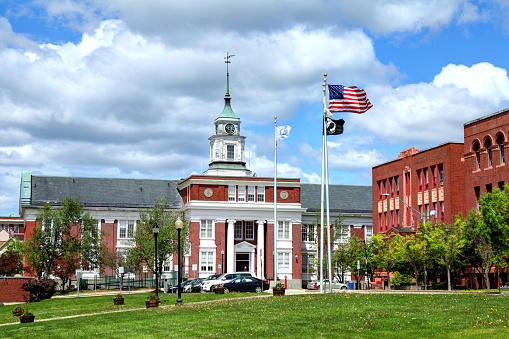This article was originally published on 07/03/2019
In June, Somerville, Massachusetts became the second city in the United States to ban facial recognition technology. Originally introduced back in May, the “Face Surveillance Full Ban Ordinance” places a moratorium on government use of facial recognition and other “remote biometric surveillance systems,” until the state develops a framework for its use.
“[T]he benefits of using facial surveillance, which are few and speculative, are greatly outweighed by its harms, which are substantial,” the bill says.
The bill touches on concerns previously cited by advocates, comparing the broad application of face surveillance in public spaces to requiring everyone to carry around and display a photo I.D. at all times.
Under the bill, any data collected through facial recognition would be considered “unlawfully obtained.” That means it can’t be used in trials and should be deleted immediately. In addition, if the banned technology is used on anybody, that person is entitled to seek damages. However, similar to San Francisco’s ban on facial recognition, Somerville’s bill only applies to facial recognition in public spaces.
Although Somerville’s ban is a good first step for addressing the concerns posed by facial recognition, focusing on public spaces and government entities does not address the growing concern around privatized surveillance.
Companies like Amazon are quickly privatizing surveillance through high-tech home security systems, such as the Ring doorbell. This opens up a regulatory grey zone that is especially concerning because your private footage isn’t regulated like police surveillance — to start. For example, homeowners are free to post and discuss videos, ensuring that a surveillance network grows across platforms.
However, perhaps the most concerning part of the bill is that it will allow for facial recognition, once the state develops a framework. This suggests that there’s a point where facial recognition can be fixed and applied equally.
One of the main concerns around this technology is its potential to exacerbate pre-existing social inequalities.
The U.S. is built on the surveillance of Black communities through slave passes, ledgers, and more. Surveillance of marginalized communities is integral to the function of the U.S. — so there is not a point where any state government operating within that context will develop a totally safe framework.
Ultimately, facial recognition is a technology that has no reason to exist. The U.S. is not a society where its impacts will be distributed equally. Relying on the government to oversee and legislate it, ignores how the government itself used surveillance against marginalized communities — from programs like COINTELPRO targeting Black people to the Countering Violent Extremism program targeting Muslim youth.
Somerville’s ban is proof that momentum is growing across the country to challenge facial recognition. However, people have to place concerns about facial recognition within a historical context. By itself, facial recognition could be a mundane technology, but the society we live in does not allow room for that.

